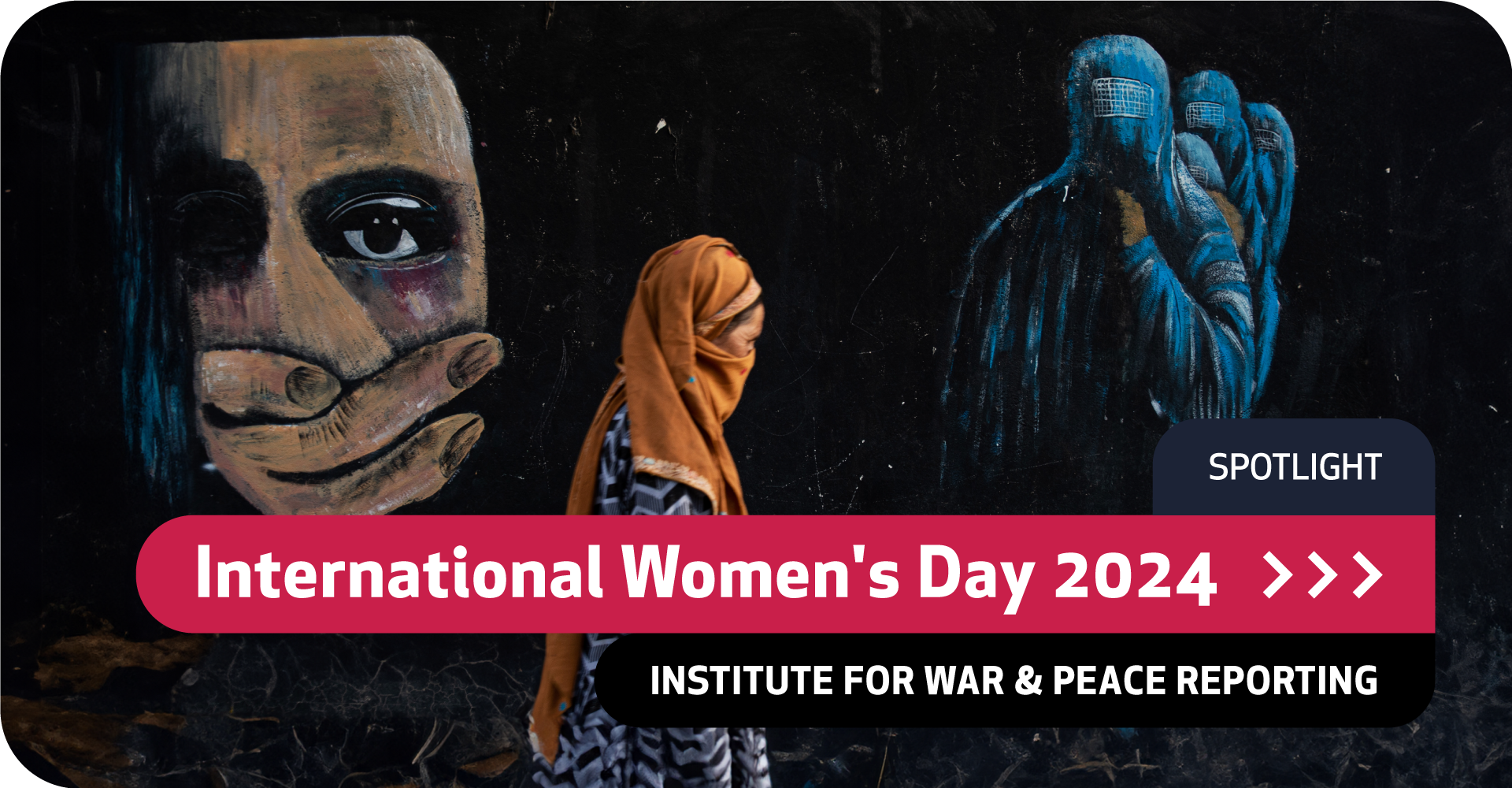Women in Central Asia Lead on Climate Change
Campaigners tackle widespread scepticism and lack of understanding of crisis.
Women have become leading lights in the field of environmental activism across Central Asia, despite facing public resistance and gender discrimination – and the fact that there are almost no women political decision-makers across the region.
KAZAKSTAN
Assel Baimukanova - Studying the Caspian Seals
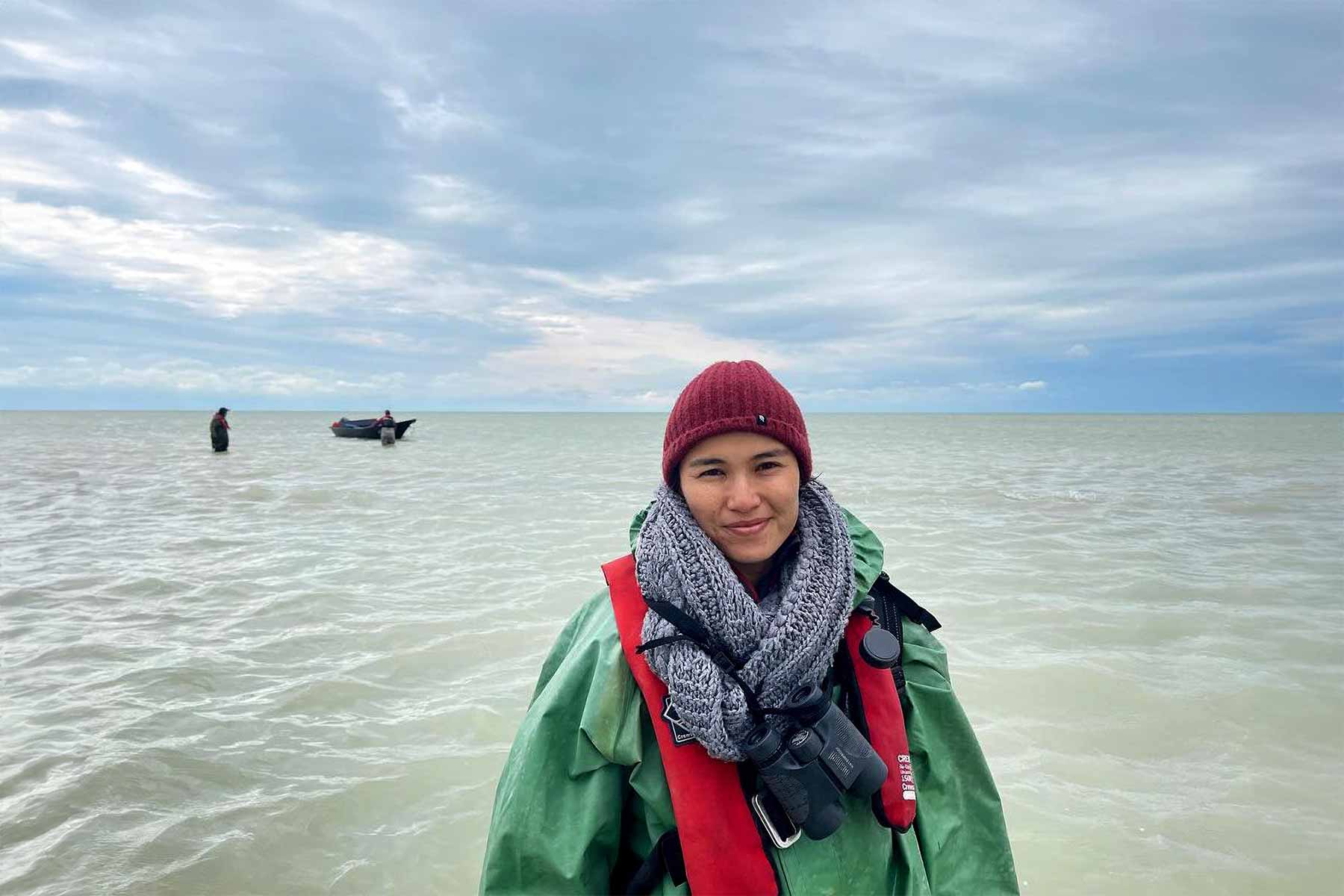
Assel Baimukanova has loved animals since childhood, following in the footsteps of her zoologist father. After she graduated with a degree in philology in 2012, she began helping her father filming science documentaries.
Baimukanova found their first project – documenting the life of Caspian seals - so exciting that she embarked on a career as a researcher. The 32-year-old now works at the Institute of Biology and Hydrogeology while pursuing a PhD majoring in ichthyology.
She continues to study the seals, an endangered species seen as an indicator of the ecological health of the Caspian Sea. Her focus is on the 98 per cent of the Caspian seal population that spend each spring and summer in rookeries on the territory of Kazakstan.
“We have found plastics not only on the coast, but also in the sea, in fish stomachs,” she said, adding, “We have managed to find out that the lifespan of the Caspian seal has decreased from 50 to 30 years.”
Popular documentaries and research projects have helped draw public attention to the plight of the Caspian seal population. But despite state funding of research projects, there is a lack of equipment and expertise, not least because pay is so low it fails to attract a new generation of scholars.
Field studies are vital to research work, and she noted that women were sometimes side-lined.
“Our organisation does not have a criterion of whether you are a female or not. I have heard that other organisations do have problems with that – girls cannot even go on a field trip because their families would not allow them to, [saying] ‘You work with men. How can you go on a trip?’ and so they are not taken on expeditions.”
Her colleagues, she said, had been consistently supportive. But she had experienced prejudice in the wider society over her choice of career.
“I face situations when they ask me why I do not have children, or why I spend so much time in science,” Baimukanova continued. “They do not understand me. If I had faced something like that in my working environment, it would have been quite difficult.”
KYRGYZSTAN
Maria Kolesnikova - A Champion of the Earth
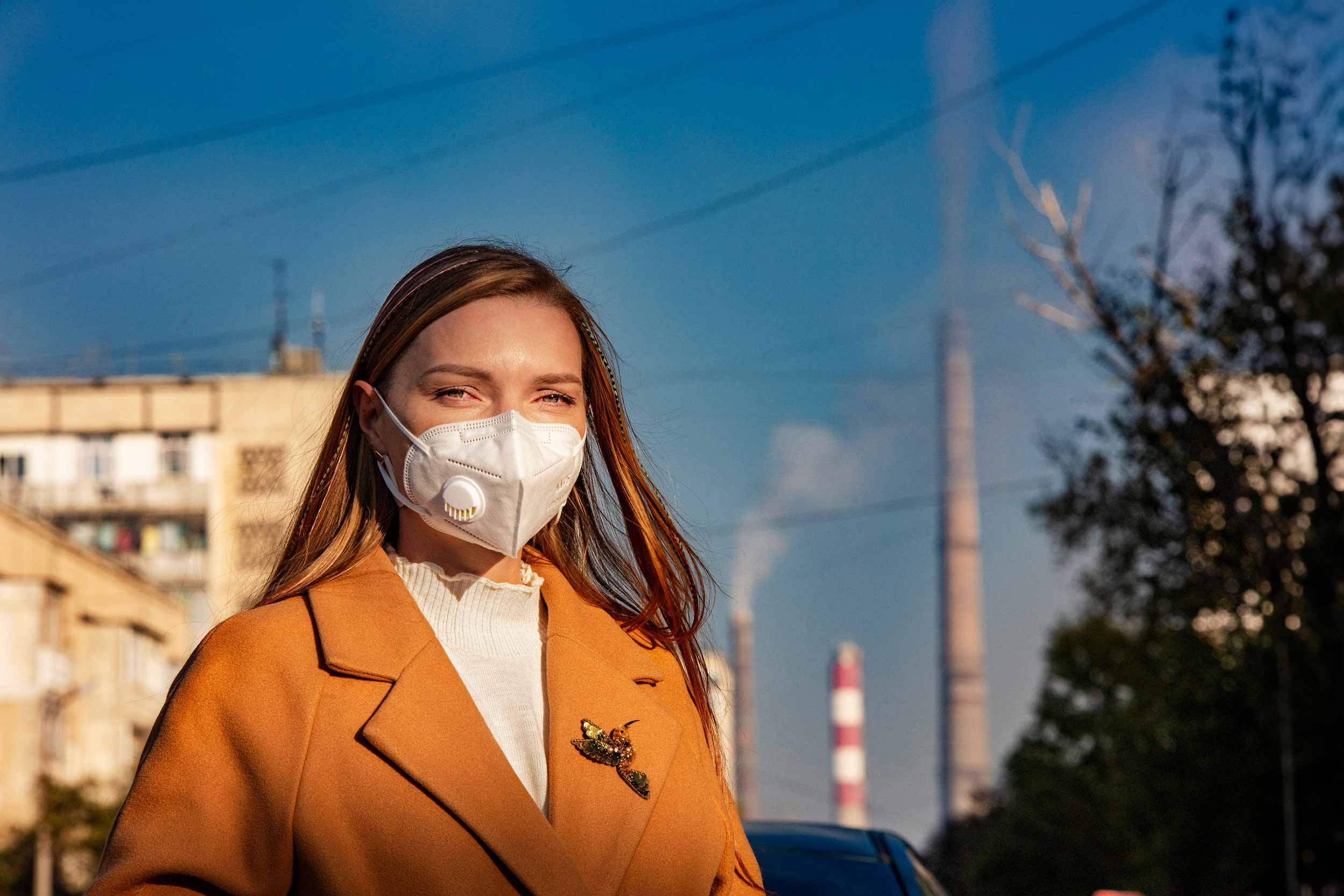
Maria Kolesnikova is Central Asia’s only winner of the UN Environment Programme (UNEP) prize, awarded for driving outstanding environmental change.
The 36 year-old heads the MoveGreen environmental organisation in Bishkek, a city where each winter the 1.2 million residents find themselves living under a grey dome of smog created by low quality coal, exhaust fumes and construction.
Kolesnikova joined MoveGreen in 2016 as a volunteer, at a time when the NGO had just begun analysing smog in the capital. It was at a time when environmental issues had not yet appeared on the public agenda, and she recalled how a MoveGreen photo of Bishkek during winter, covered by a thick blanket of smog, had sparked interest.
"I am motivated by young people, especially girls, who come to us to help us in our struggle."
“Back then, there was not a single air monitoring sensor there… We decided to find out what was that we breathed in,” Kolesnikova continued.
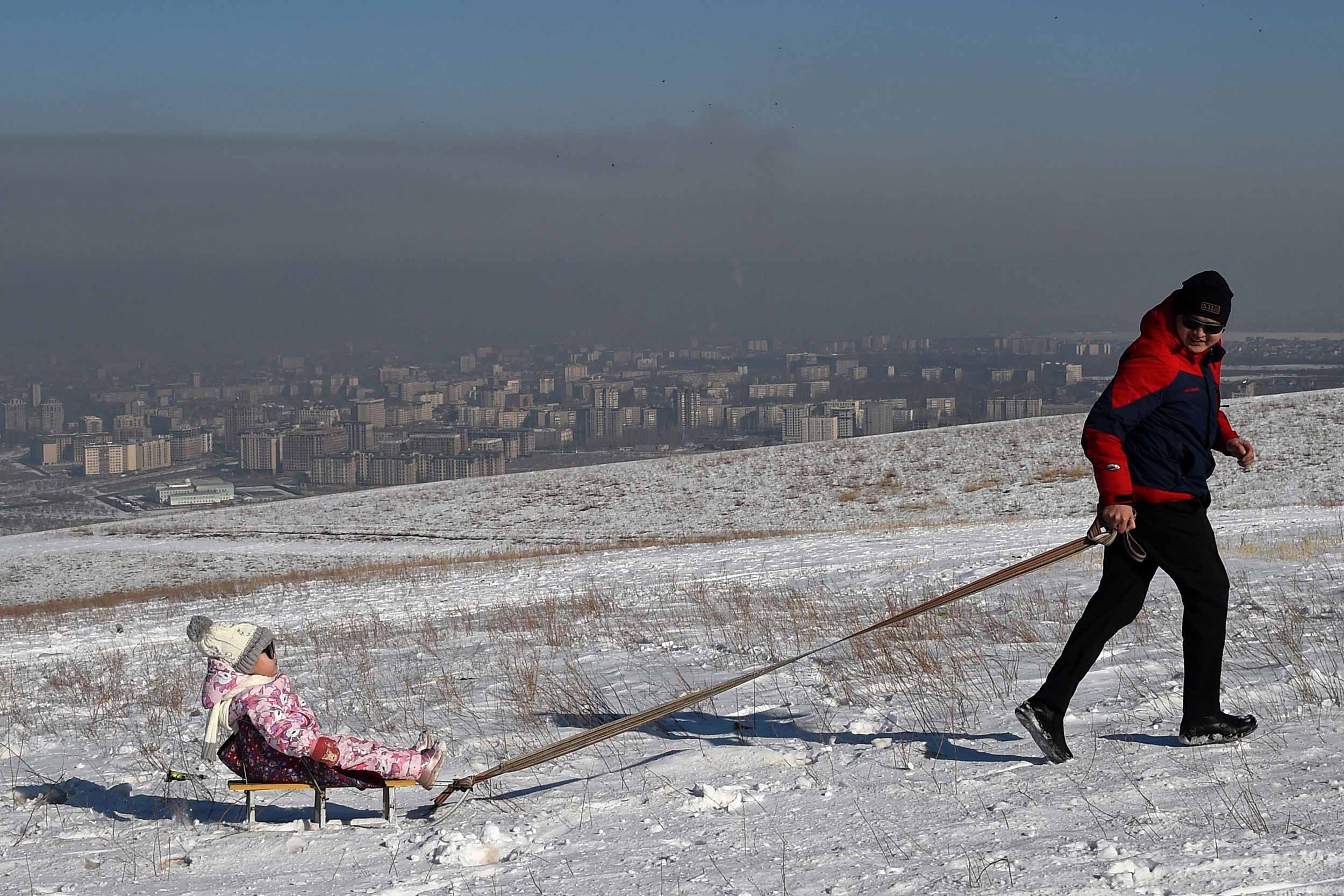
The first MoveGreen air sensors appeared in the city in 2017, monitoring the level of particulate matters (PM2.5), formed following the combustion of coal and other types of fuel and dust. Later, The NGO went on to introduce the AQ.kg app to help people understand just what they were breathing and how they could protect themselves. Awareness campaigns also engaged journalists, experts and state bodies.
Kolesnikova, who won the 2021 Entrepreneurial Vision category of the UNEP prize, stressed that civil activism was not only about highlighting problems but also about inspiring solutions.
“Being an eco-activist, it is easy to lose motivation: you work a lot, but you do not see the outcomes of your attempts, and you eventually feel that you have no desire to keep going. But then you understand that this is not way things should be done, and someone has to be held responsible for the future. Also, I am motivated by young people, especially girls, who come to us to help us in our struggle. It is such a pleasure and it means that the future is in good hands”
Kolesnikova recounted her own struggles with gender prejudice, noting that when she attends a meeting she is till often referred to as a”girl”.
“Our organisation has great achievements, major studies, experienced experts, but we are still ‘girls’,” Kolesnikova said.
Nonetheless, she noted that the large proportion of women within the ecological movement, adding, “I think it is because we are more sensitive to changes, the environment, so we cope with it better… But look at those who adopt laws, resolve budgetary issues, deliver speeches as large-scale international events on behalf of the country – they are all men. I wish I could see changes in that aspect.”
TAJIKISTAN
Natalia Idrisova - “Everything is Interrelated on Our Planet”
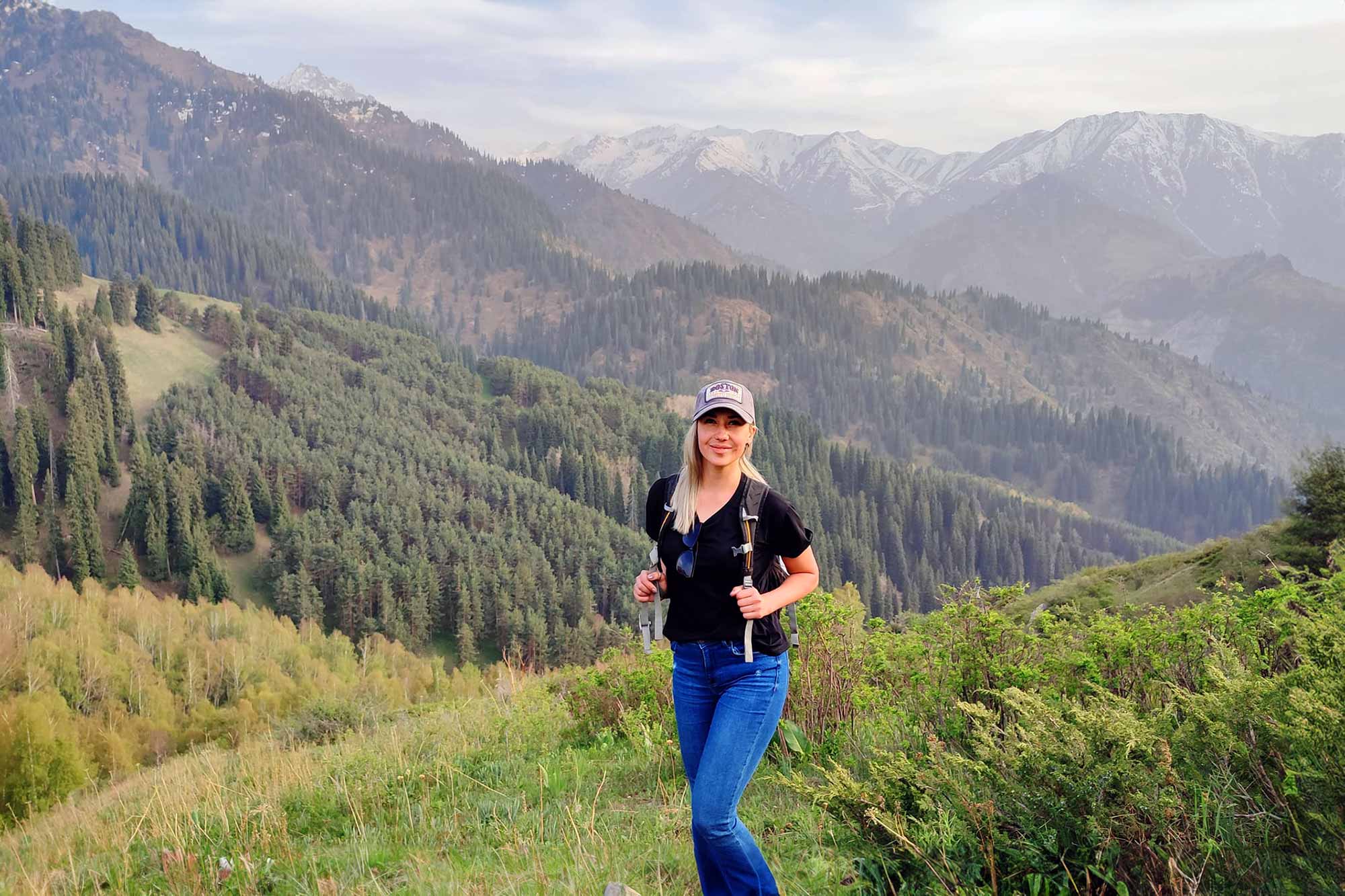
An international economist by education, Natalia Idrisova has always been fascinated by ecology.
In 2023, a year fraught with extreme heat, wildfires, floods and other natural disasters, Idrisova was included in the BBC’s 100 Women list of inspiring female figures around the world, honoured for her working helping her community tackle climate change.
“The mass scepticism of the population, from laymen to high-profile officials of relevant ministries troubles me,” said Idrisova, 36, currently a consultant on climate change, energy efficiency and youth environmental movements. “It is a significant obstacle on the path of change – change that is promoted literally by a very few, concerned persons and organisations facing rejection, criticism or general ignorance.”
“Environmental problems have a direct impact on our life, life quality, our health.”
She warned that while ecological challenges threatened all people without distinction, “low environmental literacy” caused a huge gap in understanding the reasons for and impact of environmental disaster. This played into the hands of ruthless companies that produced low quality goods, contaminated the environment, exploited mineral resources and destroyed forests.
“Our population does not care about it,” Idrisova continued. “Many see ecology as a ‘clean-up’ event in which you move rubbish from one place to another. Instead of people listening to and considering what we talk about, we often encounter rejection or mockery.”
In her everyday life, she tries to reduce waste and admits to constantly reminding those around her to do the same. She stresses that everyone can make a small contribution in this sphere.
“Environmental problems have a direct impact on our life, life quality, our health,” Idrisova said. “We all suffer from water pollution and bad air quality. A forest on a hill is cut down, heavy rainfall follows and the landslide happens resulting in casualties. Because of climate change, record temperatures cause people to die every summer in different parts of the world from unbearable heat and natural disasters. I can give so many examples. Everything is interrelated on our planet so we need to be very rational and pay attention to our environment.”
UZBEKISTAN
Oral Ataniyazova - Doctor for the Environment
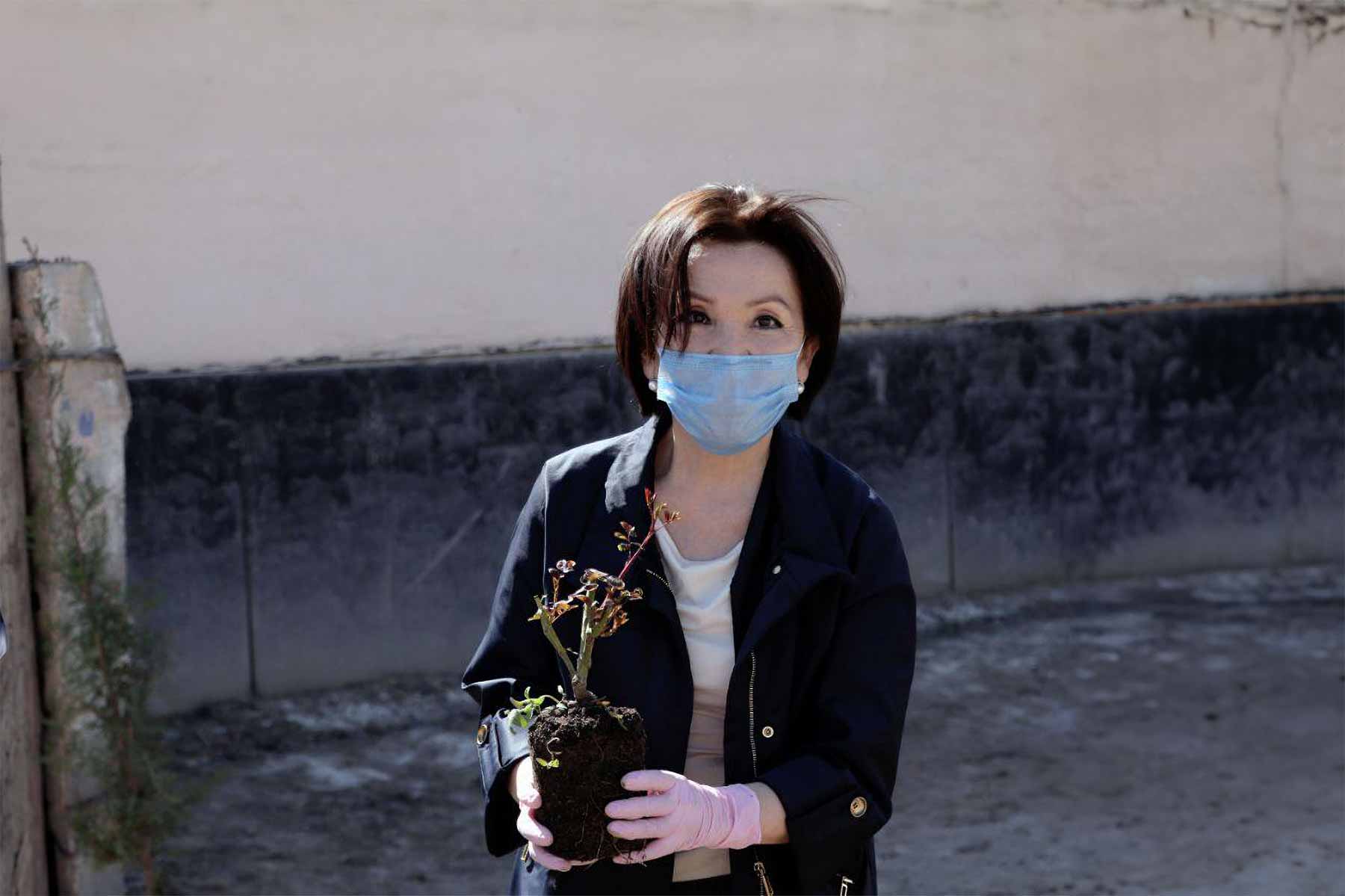
Oral Ataniyazova, one of the first women leaders of the environmental movement in Uzbekistan, has devoted her life to combating the consequences of the Aral Sea disaster.
In the past 60 years, the sea’s area has decreased almost by 90 per cent; rainfall has been reduced, woodland destroyed and over 130 species of animals and 30 fish species have become extinct. The disaster has also led to the increasing rates of cancer, respiratory and other diseases among the residents of the adjacent Sub-Aral area. Locals also face mass unemployment because of the collapse of fishing and shipbuilding industries.
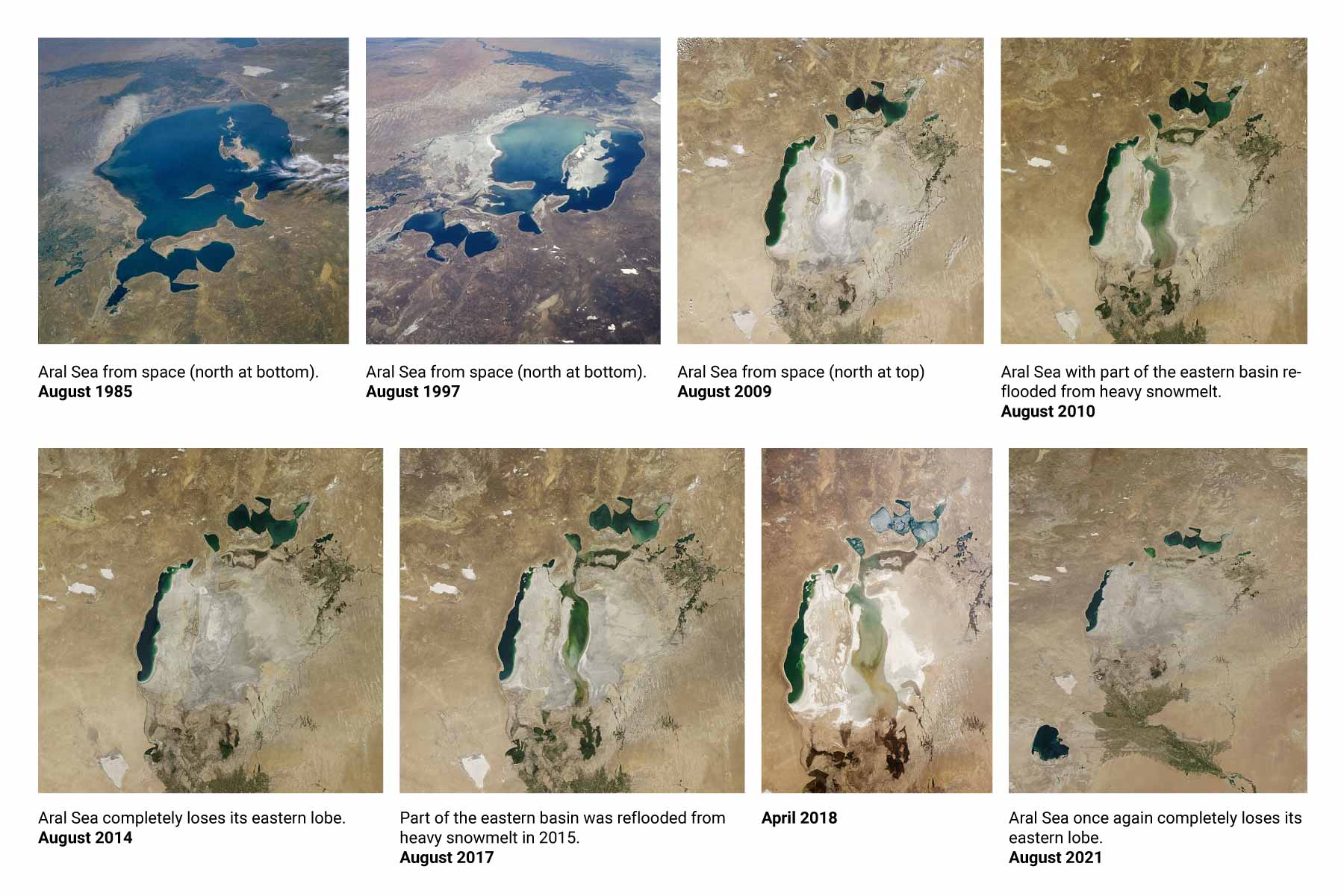
An obstetrician, 67-year-old Ataniyazova lives and works in Karakalpakstan, the region of Uzbekistan which has suffered the most from the shrinkage of the Aral Sea. Her activism was spurred by a study of 5,000 women she carried out in a rural hospital that showed almost all experienced complications during pregnancy or delivery related to the consequences of the environmental disaster.
"The health of women and children is the basis of the future of our society."
Ataniyazova went on to found the Karakalpakstan Centre for Reproductive Health and Environment and called it Perzent (Offspring).
“It was obvious to me that we needed to involve the entire society, draw the attention of the world community and involve women by raising their awareness in order to fight this tremendous problem,” she recalled.
Perzent provides training in health care, hygiene and sustainable agriculture as well as founding an organic farm, a women’s clinic and a printing house to produce a free environmental magazine.
In 2020, Ataniyazova was awarded the Goldman Environmental Prize which she said “changed my life and fate. It gave me international recognition and an opportunity for environmental activity, development of the society and personal development”.
Since 2020, Ataniyazova has headed the Karakalpak Medical Institute and is a member of the Senate of the Oliy Majlis of Uzbekistan. In October 2023, she became president of the International Society of Doctors for the Environment.
“The health of women and children is the basis of the future of our society,” she said. “I see the potential of a beautiful, healthy and happy future for every woman and every child. We must overcome hardships, recover what we have lost, and create well-being in the regions that suffered from the environmental crisis.”

